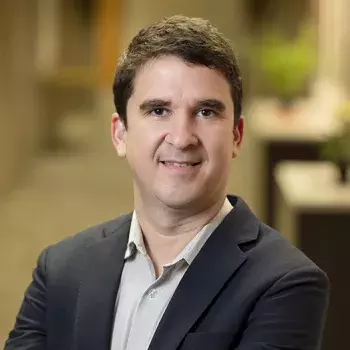
Filipe R. Campante, PhD
| Academic Area | Economics |
|---|
Filipe R. Campante is Bloomberg Distinguished Professor at Johns Hopkins University (SAIS and Carey Business School). He is interested in political economy, development economics, and urban/regional issues. His research looks at what constrains politicians and policy makers beyond formal checks and balances: cultural norms, institutions, media, political protest.
In particular, it has focused on how these informal constraints are affected by the spatial distribution of people and economic activity, by access to information, by the evolution of cultural norms, and by the structure of the economy. He tries to answer these aggregate questions—what happens to countries or states or cities—with an applied microeconomic approach. Before joining JHU, he was Assistant and Associate Professor of Public Policy at Harvard (2007-18).
Education
- PhD, Economics, Harvard University
- MA, Economics, Pontifical Catholic University of Rio de Janeiro (PUC-Rio)
- BA, Economics, Federal University of Rio de Janeiro (UFRJ)
Research
Selected publications
- Advanced Macroeconomics: An Easy Guide (with Federico Sturzenegger and Andrés Velasco. LSE Press, 2021.
- The Political Economy Consequences of China’s Export Slowdown (with Davin Chor and Bingjing Li). Journal of the European Economic Association (forthcoming)
- Media and Social Capital (with Ruben Durante and Andrea Tesei). Annual Review of Economics 14: 69-91, August 2022.
- Building Nations Through Shared Experiences: Evidence from African Football (with Emilio Depetris-Chauvin and Ruben Durante). American Economic Review 110(5): 1572-1602, May 2020
- Long-Range Growth: Economic Development in the Global Network of Air Links (with David Yanagizawa-Drott). Quarterly Journal of Economics 133(3): 1395-1458, August 2018
- Politics 2.0: The Multifaceted Effect of Broadband Internet on Political Participation (with Ruben Durante and Francesco Sobbrio). Journal of the European Economic Association, 16(4): 1094-1136, August 2018
- Does Religion Affect Economic Growth and Happiness? Evidence from Ramadan (with David Yanagizawa-Drott). Quarterly Journal of Economics 130(2): 615-658, May 2015.
- Isolated Capital Cities, Accountability, and Corruption: Evidence from US States (with Quoc-Anh Do). American Economic Review 104(8): 2456–2481, August 2014
Working papers
- Social Media and the Behavior of Politicians: Evidence from Facebook in Brazil (2022) with Pedro Bessone, Claudio Ferraz and Pedro C.L. Souza.
- The Virus of Fear: The Political Impact of Ebola in the US (2021) with Emilio Depetris-Chauvin and Ruben Durante.
Teaching
Current
- The Firm and The Macroeconomy
Honors and distinctions
- Research Associate, National Bureau of Economic Research
- Editorial Board, American Economic Journal: Economic Policy
- Associate Editor, Journal of Comparative Economics
- Executive Committee, Association for Comparative Economic Studies
- 25th LACEA Anniversary Associate
In the media
- Monthly column, Nexo Jornal
- "Brazil's Coronavirus Crisis, Bolsonaro’s Response and the Failure of Authoritarian Populism.” (with C. Ferraz and R. Soares) NBC News Think (05/15/2020).
- “Brazil’s New President Faces Few Constraints.” Bloomberg Opinion, 10/29/2018
- "Brazil's Argentina Moment."(with Dani Rodrik) Projec Syndicate, 06/08/2017
- “Did Declining Social Mobility Cause Trump’s Rise? In a Word, No.” (with D. Yanagizawa-Drott) Vox.com, 12/09/2016.
- “Rural Capitals, Big-Time Problems.” New York Times, 09/10/2014.
- "As Millions of People Fast For Ramadan, Does The Economy Suffer?" NPR, 07/24/2014
- "Measuring Ramadan.” (with D. Yanagizawa-Drott) New York Times, 07/13/2014
- "What a State Capital's Location Can Say About Corruption." NPR, 07/30/2013
- “Teaching Rebels.” (with D. Chor) International Herald Tribune, 02/22/2011.
- Multiple mentions in outlets such as the New York Times, Science, NPR, Washington Post, The Economist, Los Angeles Times, Foreign Affairs, Politico, among others.